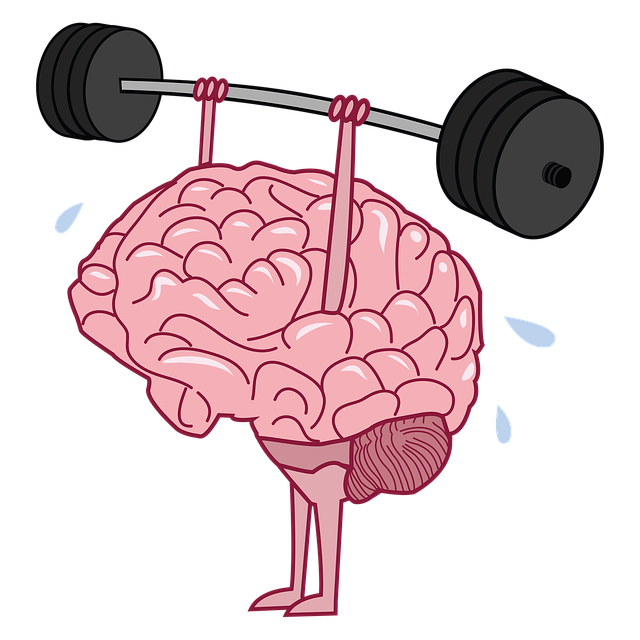TL;DR:
Russian-speaking adults facing stress and emotional challenges can benefit from therapy, which enhances emotional intelligence and provides coping skills. Culturally sensitive approaches are key to effective treatment, addressing language barriers and past traumas. Therapists use techniques like CBT and mindfulness to empower clients with resilience, self-esteem improvement, and burnout prevention strategies tailored to their unique needs. Specialized programs offer structured guidance and positive self-talk for holistic mental wellness, catering to the specific needs of Russian-speaking adults.
Coping skills development is a vital aspect of emotional well-being, especially for adults, including those from diverse cultural backgrounds like Russian-speaking communities. This article explores essential strategies for navigating life’s challenges. We begin by delving into the foundation of coping skills and their role in therapy, offering a supportive path to resilience. Subsequently, we present culturally sensitive approaches tailored to Russian-speaking adults, ensuring inclusive support. Finally, practical tools are provided to empower individuals in enhancing their coping abilities and fostering emotional equilibrium.
- Understanding Coping Skills: A Foundation for Emotional Well-being
- The Role of Therapy in Developing Effective Coping Strategies
- Culturally Sensitive Approaches for Russian Speaking Adults
- Practical Tools and Techniques to Enhance Coping Abilities
Understanding Coping Skills: A Foundation for Emotional Well-being

Coping skills are essential for maintaining emotional well-being and navigating life’s challenges. Understanding these skills is a crucial step towards fostering resilience, which is especially vital for adults facing complex issues. In today’s world, where stress and anxiety are prevalent, developing effective coping mechanisms can significantly impact one’s overall mental health.
Russian-speaking adults seeking therapy often benefit from exploring various coping strategies tailored to their unique needs. Building emotional intelligence through therapy sessions enables individuals to recognize and manage their emotions more effectively. Moreover, risk management planning is an integral part of the process, helping professionals identify potential triggers and develop proactive strategies for maintaining stability and promoting positive mental health outcomes.
The Role of Therapy in Developing Effective Coping Strategies

Therapy plays a pivotal role in equipping individuals with effective coping strategies to navigate life’s challenges. For Russian-speaking adults seeking support, therapy offers a safe and confidential space to explore their emotions, gain insights into their stress triggers, and learn healthy ways to manage them. Skilled therapists can help clients identify unhelpful behaviors and thought patterns, replacing them with more adaptive responses that promote mental wellness.
One of the key benefits of therapy is its ability to foster self-awareness. Through structured sessions, individuals learn to recognize their unique coping mechanisms and develop personalized strategies aligned with Mind Over Matter principles. Furthermore, many organizations now offer Stress Management Workshops and Mental Wellness Coaching Programs specifically tailored for Russian-speaking adults, enhancing access to effective coping skill development resources.
Culturally Sensitive Approaches for Russian Speaking Adults

For Russian-speaking adults seeking therapy, culturally sensitive approaches are essential to building trust and fostering effective communication. Many immigrants and refugees from Russia may face unique challenges related to language barriers, cultural differences, and past traumatic experiences. Therapists should be equipped with knowledge of these nuances to provide a safe and supportive environment. One key aspect is adapting therapeutic techniques to align with the client’s cultural background and beliefs, ensuring that self-care practices and burnout prevention strategies are accessible and meaningful.
By incorporating Mind Over Matter Principles, therapists can help Russian-speaking adults develop resilience and coping skills tailored to their individual needs. This may involve teaching mindfulness techniques, encouraging open dialogue about personal struggles, and promoting self-reflection as a form of healing. Additionally, addressing specific issues related to migration, such as cultural identity shifts and adjustment disorders, is crucial in preventing burnout among healthcare providers who often support these populations.
Practical Tools and Techniques to Enhance Coping Abilities

In today’s fast-paced world, developing effective coping skills is more crucial than ever for maintaining mental wellness. For Russian speaking adults seeking support, therapy offers a safe space to explore and enhance their coping abilities. Professional therapists provide practical tools and techniques tailored to individual needs, empowering clients with strategies to navigate stress, anxiety, and challenging emotions. Through cognitive-behavioral therapy (CBT), mindfulness practices, and emotional regulation techniques, individuals can gain valuable insights into their thought patterns and develop healthier ways of responding to life’s stressors.
Self-esteem improvement is a significant aspect of coping skills development, as it fosters resilience and confidence in managing difficult situations. Mental wellness coaching programs offer structured guidance, helping clients set personal goals and cultivate positive self-talk. By incorporating these strategies into daily routines, Russian speaking adults can experience improved anxiety relief and overall well-being. These techniques are particularly valuable for those seeking a holistic approach to their mental health journey, allowing them to take control and thrive in a demanding world.
Coping skills development is a vital aspect of emotional well-being, especially for Russian speaking adults. By understanding effective coping strategies and accessing culturally sensitive approaches, such as therapy tailored to their needs, individuals can navigate life’s challenges with resilience. Integrating practical tools and techniques into daily routines enables folks to enhance their coping abilities, fostering overall mental health and wellness. For those seeking support, exploring therapy options designed specifically for adults speaking Russian offers a supportive environment to cultivate lasting resilience.










